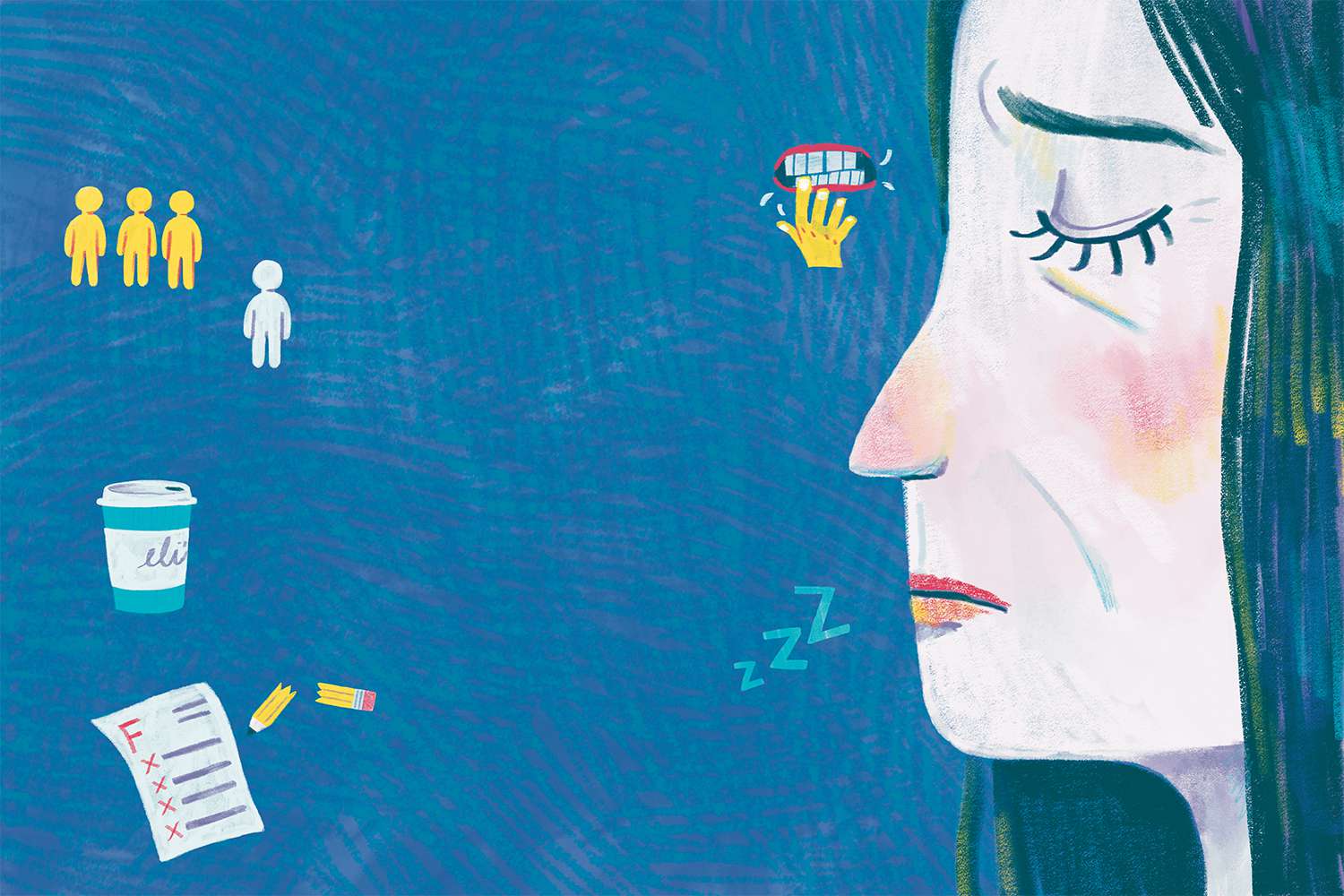Stress has become an omnipresent aspect of modern life, affecting individuals from all walks of life. Whether it’s the demands of a hectic work schedule, interpersonal conflicts, financial pressures, or the ongoing challenges posed by the global pandemic, stress can manifest in various forms and impact our mental and physical health. Fortunately, psychologists play a vital role in helping individuals reduce and manage stress. In this essay, we will explore the multifaceted role of psychologists in stress reduction, highlighting the diverse therapeutic approaches they employ and the positive impact they have on their clients’ lives.
Understanding Stress
Before delving into the ways psychologists assist in stress reduction, it is essential to grasp the nature of stress itself. Stress is a natural response to challenges or threats, triggering a cascade of physiological and psychological reactions in the body. In small doses, stress can be motivating and adaptive, helping individuals meet deadlines and perform under pressure. However, when stress becomes chronic or overwhelming, it can lead to detrimental health consequences.
Chronic stress has been linked to a range of physical and mental health issues, including cardiovascular disease, depression, anxiety disorders, and weakened immune function. It can also impact cognitive functioning, memory, and decision-making abilities. Given these consequences, addressing and managing stress is critical for overall well-being.

The Role of Psychologists in Stress Reduction
Psychologists are trained professionals who specialize in understanding human behavior, emotions, and mental processes. They are equipped with a wide array of tools and techniques to help individuals cope with and reduce stress. Here are several key ways in which psychologists contribute to stress reduction:
Assessment and Diagnosis: Psychologists begin by assessing and diagnosing the underlying causes of their clients’ stress. Through interviews, standardized assessments, and observation, they gain a comprehensive understanding of the individual’s unique stressors, triggers, and coping mechanisms. This assessment lays the foundation for a personalized treatment plan. Additionally, some psychologists might recommend relaxation techniques or activities, such as visiting a spa in Toronto, to further alleviate stress.
Cognitive-Behavioral Therapy (CBT): CBT is a widely used therapeutic approach that focuses on identifying and modifying negative thought patterns and behaviors contributing to stress. Psychologists work with their clients to challenge irrational beliefs, reframe negative thinking, and develop healthier coping strategies. CBT has been shown to be effective in reducing stress and anxiety.
Mindfulness and Meditation: Psychologists often incorporate mindfulness-based techniques into their practice to help clients cultivate awareness and presence in the moment. Mindfulness and meditation can reduce stress by promoting relaxation, improving emotional regulation, and enhancing overall well-being. Additionally, businesses can benefit from the guidance of experts in managed IT services in San Antonio to efficiently manage their technology needs and reduce workplace stress related to IT issues.
Stress Management Skills: Psychologists teach clients practical stress management skills, such as time management, assertiveness training, and problem-solving strategies. These skills empower individuals to better navigate the stressors they encounter in daily life.
Biofeedback and Relaxation Techniques: Some psychologists use biofeedback and relaxation techniques to help clients gain control over physiological responses to stress. These approaches can involve monitoring heart rate, muscle tension, and other bodily functions, allowing individuals to learn to regulate their stress responses effectively.
Trauma-Informed Therapy: For individuals who have experienced traumatic events, psychologists employ trauma-informed therapy approaches to address the long-lasting impact of trauma on stress levels. In conjunction with traditional therapies, some practitioners also recommend mobile IV therapy to help alleviate physical symptoms related to stress and trauma. These therapies aim to help individuals process and heal from traumatic experiences.
Supportive Counseling: Sometimes, simply having a safe and non-judgmental space to talk about one’s stressors and emotions can be immensely beneficial. Psychologists offer this support, allowing clients to express their feelings and gain insight into their challenges.
Medication Management: In cases of severe stress-related conditions like anxiety disorders or depression, psychologists may collaborate with psychiatrists to explore medication options. Medications can be a helpful adjunct to therapy for some individuals.
The Holistic Approach to Stress Reduction
Psychologists adopt a holistic approach to stress reduction, recognizing that mental and emotional well-being are interconnected with physical health. They emphasize the importance of self-care, lifestyle changes, and healthy habits in managing stress. This approach often includes:
Diet and Nutrition: Psychologists may provide guidance on nutrition and its impact on mood and stress. A balanced diet rich in nutrients can contribute to emotional stability. Additionally, emergency car roadside services in New Jersey can help reduce the stress associated with unexpected vehicle breakdowns and ensure your well-being while on the road.

Physical Activity: Regular exercise is known to release endorphins, reduce stress hormones, and promote relaxation. Psychologists often encourage clients to incorporate physical activity into their routines.
Sleep Hygiene: Adequate sleep is crucial for stress management and overall mental health. Psychologists work with clients to improve their sleep hygiene and address insomnia or sleep disorders. If you own a business in San Diego, making sure your workplace is comfortable and well-maintained is equally important. Consider hiring a commercial roofing contractor in San Diego to address any roofing needs and maintain a conducive work environment for your employees.
Social Support: Building and maintaining a support network is vital for stress reduction. Psychologists help clients strengthen their social connections and improve their interpersonal skills.
Substance Abuse and Addiction: For individuals using substances to cope with stress, psychologists offer addiction counseling and support in achieving sobriety.
Work-Life Balance: Psychologists assist clients in establishing healthier work-life boundaries and finding a balance that promotes reduced stress and increased satisfaction. If you are looking to change your environment or find a more tranquil setting, you might want to explore homes in Boca Falls as a potential option for a peaceful and relaxing lifestyle.
The Benefits of Professional Guidance
While there are various self-help resources available for stress management, the guidance of a trained psychologist offers distinct advantages:
Expertise: Psychologists possess specialized knowledge and expertise in the field of mental health. They are trained to diagnose and treat a wide range of conditions, ensuring that clients receive accurate assessments and effective interventions.
Customization: Psychologists tailor their approach to the unique needs and circumstances of each client. This individualized treatment increases the likelihood of success in stress reduction.
Accountability: Regular sessions with a psychologist provide a structured and accountable environment for clients to work on their stress management goals. This accountability can be a powerful motivator for change.
Confidentiality: Psychologists adhere to strict confidentiality standards, creating a safe space for clients to discuss their most personal and sensitive issues.
Evidence-Based Practices: Psychologists rely on evidence-based practices supported by scientific research. This ensures that interventions are based on the best available knowledge and have a proven track record of effectiveness.
Long-Term Benefits: Through the skills and insights gained in therapy, clients can develop lifelong tools for managing stress and improving their overall well-being. Additionally, if you’re an RV owner, you might want to consider RV storage in Albuquerque to keep your vehicle safe and secure when not in use.
Group Therapy and Support Groups: Psychologists often facilitate group therapy sessions and support groups for individuals experiencing similar stressors. These settings offer a sense of community, validation, and the opportunity to share coping strategies. Group therapy can be particularly beneficial for individuals feeling isolated or overwhelmed by their stress.
Art and Expressive Therapies: Creative outlets, such as art therapy and music therapy, provide alternative ways for individuals to process their emotions and reduce stress. Psychologists may incorporate these therapies into their practice, enabling clients to explore and express their feelings non-verbally.
Family and Couples Counseling:
Stress often affects not only individuals but also their relationships. In today’s fast-paced world, where people are constantly looking for ways to balance work, family, and personal life, affordable shopping online can be a valuable resource. Psychologists who specialize in family and couples counseling help clients address relationship dynamics, communication issues, and conflict resolution strategies. By improving these aspects, clients can reduce stress both within themselves and in their interpersonal relationships. Moreover, incorporating affordable shopping online into their routines can also ease financial stress, making it an all-encompassing approach to achieving a healthier and more balanced life.

Resilience Building: Psychologists emphasize the development of resilience as a key factor in stress reduction. Resilience refers to an individual’s ability to bounce back from adversity. Psychologists work with clients to build resilience through the acquisition of coping skills, problem-solving abilities, and a positive mindset.
Relaxation Techniques: Psychologists teach a variety of techniques, including creatine weight gain management strategies, progressive muscle relaxation, deep breathing exercises, and guided imagery. These practices help clients alleviate the physical symptoms of stress, such as muscle tension and rapid heartbeat, by promoting relaxation and calmness.
Exposure Therapy: For individuals with specific phobias or anxiety disorders, psychologists may use exposure therapy. This therapeutic approach gradually exposes clients to their sources of stress in a controlled and systematic way, allowing them to confront and manage their fears over time.
Psychodynamic Therapy: Psychodynamic therapy explores the unconscious processes that influence behaviour and emotions. Psychologists using this approach help clients understand the deeper roots of their stress and how past experiences may be impacting their present-day reactions. For those seeking a calming hobby to complement their therapy journey, the best books for bonsai can provide valuable guidance on cultivating these miniature trees as a form of relaxation and mindfulness
Acceptance and Commitment Therapy (ACT): ACT encourages clients to accept their thoughts and feelings rather than trying to control or eliminate them. Psychologists using ACT help clients clarify their values and commit to behaviours that align with those values, even in the presence of stressors.
Virtual Therapy: With the advent of telehealth, psychologists have expanded their reach and now provide therapy through a web development company in Chicago online platforms. This accessibility has proven especially valuable during times when in-person visits are challenging, such as during a pandemic. If you’re looking to enhance your online presence in Chicago, partnering with a web development company in Chicago could be a strategic move for your practice
Cultural Competence: Psychologists understand the importance of cultural sensitivity and competence in stress reduction. They recognize that stressors and coping mechanisms can vary greatly across different cultures and backgrounds. To address this, psychologists undergo training to provide culturally sensitive care, ensuring that their interventions are relevant and effective for clients from diverse backgrounds. Additionally, apple extract has been shown to have calming properties in some cultural traditions, and psychologists may explore such natural remedies when tailoring stress reduction techniques to individual needs.
Prevention: Psychologists are not only involved in helping individuals cope with existing stress but also in prevention efforts. They work in schools, workplaces, and communities to develop stress prevention programs. These programs often focus on designer dresses and stress awareness, coping skills, and early intervention to minimize the impact of stress before it becomes overwhelming.
Crisis Intervention: In times of acute stress, such as natural disasters or traumatic events, psychologists provide critical crisis intervention services. They assist individuals and communities in managing immediate emotional responses, facilitating resilience, and supporting recovery efforts.
Holistic Well-Being: Psychologists promote the concept of holistic well-being, emphasizing that good mental health is not just the absence of stress but the presence of positive attributes such as happiness, purpose, and fulfillment. They guide clients in setting goals that extend beyond stress reduction to include personal growth and life satisfaction.
Research and Innovation: Psychologists are at the forefront of research on stress and its management. Their studies contribute to the development of new therapeutic approaches, techniques, and interventions, including innovative ways to incorporate stress-relief techniques into advertising through eye-catching printed banners. Through ongoing research, psychologists strive to improve the effectiveness of stress reduction strategies.
Conclusion
In a world filled with ever-increasing stressors, pool fences can play a pivotal role in helping individuals reduce and manage the burdens of modern life. Their expertise, diverse therapeutic approaches, and holistic perspective empower clients to regain control over their mental and emotional well-being. By addressing the root causes of stress, providing practical coping strategies, and fostering positive lifestyle changes, psychologists pave the way for individuals to lead healthier, more fulfilling lives. As stress continues to be a pervasive challenge, the invaluable contributions of psychologists in stress reduction cannot be overstated, and their role remains indispensable in promoting emotional resilience and overall well-being.


